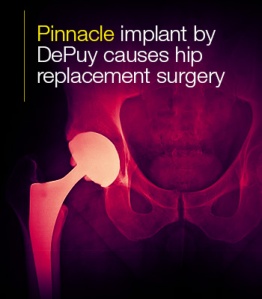 The United Kingdom had created their own national joint registry in 2002 and now the United States of America aims to do the same, according to leading newspapers. Most men and women who are past the age of 50 are often at risk of joint problems. By building a national joint registry of its own, the US may be able to help its citizens and nearby North American nations gather reliable information faster and better, medical industry observers say. However the registry is yet to be fully established. The medical device tax that will fund ObamaCare may be starting on the first of January next year, making manufacturers pay more for their sales.
The United Kingdom had created their own national joint registry in 2002 and now the United States of America aims to do the same, according to leading newspapers. Most men and women who are past the age of 50 are often at risk of joint problems. By building a national joint registry of its own, the US may be able to help its citizens and nearby North American nations gather reliable information faster and better, medical industry observers say. However the registry is yet to be fully established. The medical device tax that will fund ObamaCare may be starting on the first of January next year, making manufacturers pay more for their sales.
There are already plans on bringing about the structure and all the details that are needed to be fixed have been discussed. But there seems to be some qualms on getting it done. David G. Lewallen, chairman of the American Joint Replacement Registry (AJRR) board of directors, announced in last year’s annual meeting of the American Academy of Orthopaedic Surgeons (AAOS) that this undertaking will be collaborated by several duly established groups. The AJRR used to be an organization supported by the academy but now it will be a joint project that would entail elaborate cooperation with different organizations.
For it to be recognized as a true national registry by the international registry group, it needs to have more than 90 percent of the hospitals in the country to report their joint replacement surgeries. Data collection remains the main focus of the registry and it may aid in research and development of better hip devices and procedure to ensure the safety of patients. Manufacturers may also benefit from the data that may be gathered by the registry. The Food and Drug Administration (FDA) may also find the information helpful as a means of monitoring the devices that they have already approved.
As problems arising from metal-on-metal hip implants continue to attract public attention, the FDA may be able to use the data from the AJRR to evaluate the devices, whether they are to be recalled or not. DePuy ASR is one of the brands that were recalled but there are some people who still have these devices within them. Failure of these devices may not happen to all patients. Several devices have already been taken out from the market because of metal toxicity found among patients. There are even several men and women who are in various stages of filing legal actions against the makers of their prostheses.
URL References:
- aaos.org/news/aaosnow/apr10/cover2.asp
- orthodoc.aaos.org/ajrr/National%20Joint%20Rregistry%20in%20the%20US%20makes%20progress%20but%20faces%20obstacles%20in%20execution.pdf
- hqip.org.uk/national-joint-registry-njr/
 The trials against one of Johnson & Johnson group of companies because of their DePuy ASR hip replacement system are gaining much attention, medical industry observers say. Plaintiffs of DePuy Pinnacle hip implants are even following the proceedings of the case because of the rumours of proposed settlements. There are over 7, 200 cases filed against DePuy Orthopaedics and the first two trials were only heard last month with the third one scheduled in May 2013. The Pinnacle hip replacement system from DePuy has also led to several lawsuits but the trials are not due until September of 2014.
The trials against one of Johnson & Johnson group of companies because of their DePuy ASR hip replacement system are gaining much attention, medical industry observers say. Plaintiffs of DePuy Pinnacle hip implants are even following the proceedings of the case because of the rumours of proposed settlements. There are over 7, 200 cases filed against DePuy Orthopaedics and the first two trials were only heard last month with the third one scheduled in May 2013. The Pinnacle hip replacement system from DePuy has also led to several lawsuits but the trials are not due until September of 2014. The United Kingdom had created their own national joint registry in 2002 and now the United States of America aims to do the same, according to leading newspapers. Most men and women who are past the age of 50 are often at risk of joint problems. By building a national joint registry of its own, the US may be able to help its citizens and nearby North American nations gather reliable information faster and better, medical industry observers say. However the registry is yet to be fully established.
The United Kingdom had created their own national joint registry in 2002 and now the United States of America aims to do the same, according to leading newspapers. Most men and women who are past the age of 50 are often at risk of joint problems. By building a national joint registry of its own, the US may be able to help its citizens and nearby North American nations gather reliable information faster and better, medical industry observers say. However the registry is yet to be fully established.